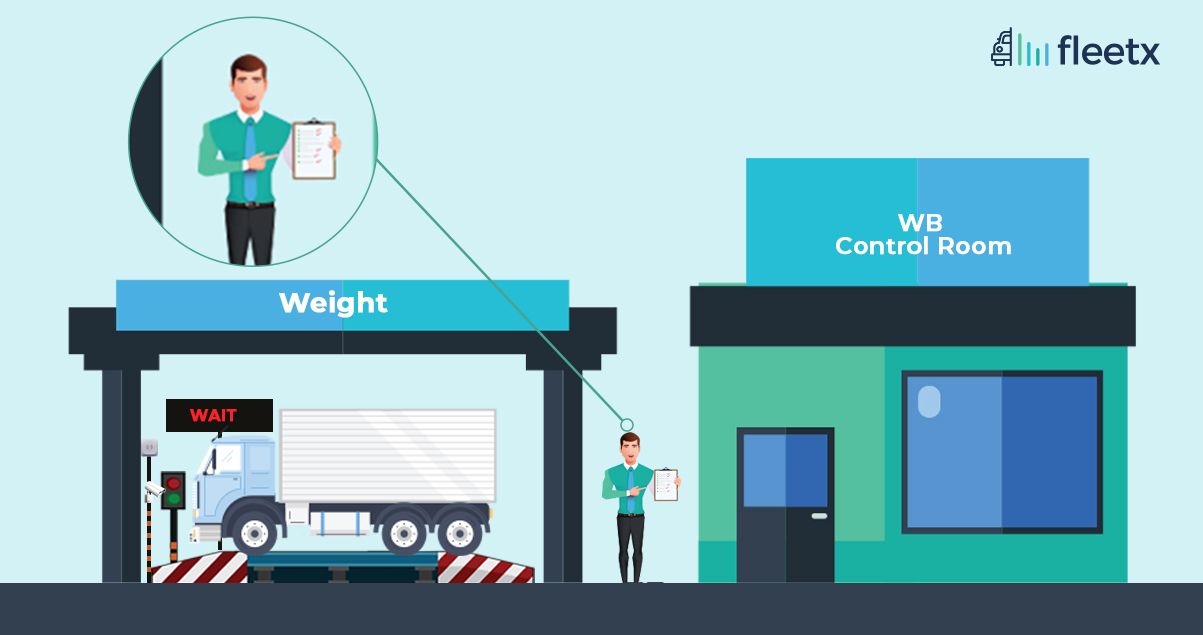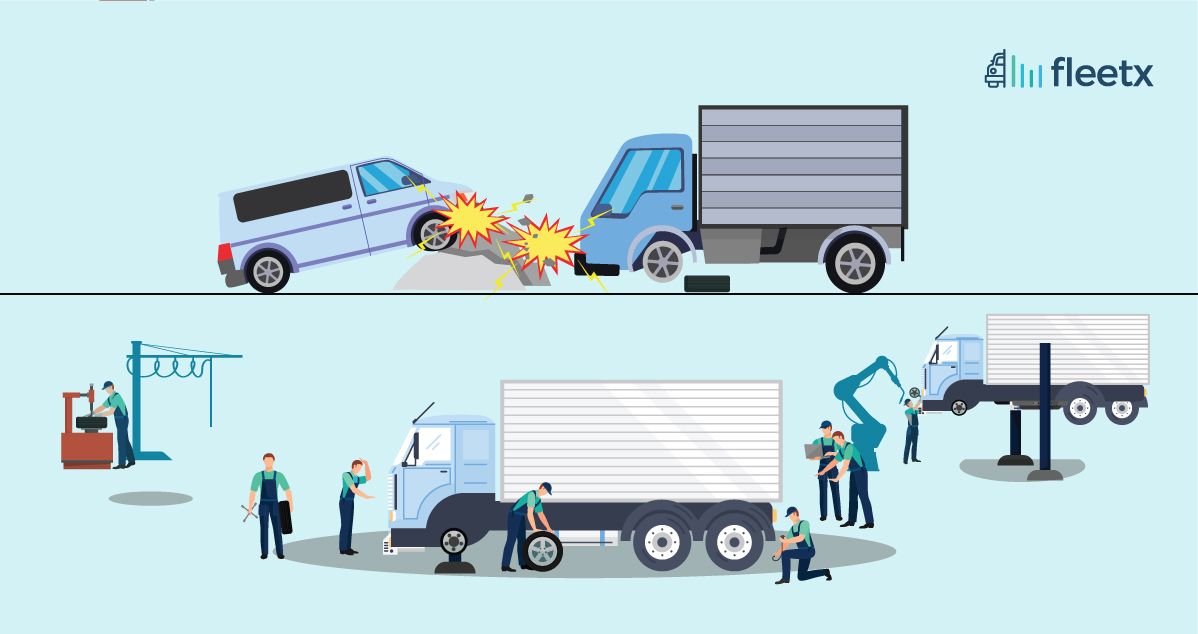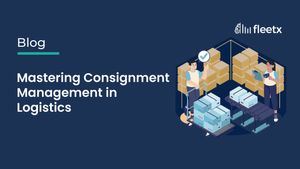
Supply chain crunch leading to transportation delays is familiar to businesses. Time and again, transportation delays have resulted in either non availability of the concerned product to consumers or a partial halting of the manufacturing or construction process. According to a report by the Council of Economic Advisers (CEA) of The White House, the manufacturing and construction sectors were hit the hardest by covid-19 disruption. Consumers were unable to get products as sellers did not have enough inventory. Manufacturers were unable to produce goods as the raw material supply chain was hit due to the indefinite transportation delays due to container shortages.
Transportation delays were very much visible in India’s automobile sector, which was hit by semiconductor shortages. Consequently, automobile companies had a long list of backlogs on the production end while consumers saw over a year of wait for their vehicles. Construction companies are faced with severe disruptions in case of transportation delays. One of the key reasons is the relatively higher proportion of leased equipment employed by construction companies and their business activities heavily reliant on the transportation of raw materials.
Key causes and suggestions for transportation delays in the manufacturing sector
Manufacturing sectors across industries are responsible for producing all the goods we use today. Their supply chains rely heavily on a timely and efficient supply of raw materials from their suppliers. The number of raw materials used to manufacture varies across different products, often sourced from all over the world. Disruption in the supply chain leading to delays in the transportation of even a single raw material, can, at times, halt the assemblies in manufacturing plants. Let’s quickly look at some of the key reasons and facts related to delays in transportation in the manufacturing sector.
Sudden surge or downturn in demand from consumers
Most businesses have limited capacity for supply chains which are operationalized considering the public demand for the product. It includes factories, assembly lines, labour, warehouses, and transportation. For most manufacturers, these are fixed costs as they own them partially or fully. Thus, it is impossible to efficiently scale up production in case of sudden demand. Moreover, businesses also face a shortage of warehouses and transport vehicles. One of the most prominent examples is the shortage of seatbelts in Mumbai after the government announced the requirement for seat belts for backseat passengers. Some companies that off-shore some or most of the functioning, including transportation, warehousing and manufacturing using 3PL or 4PL or 5PL logistics, can be more dynamic in scaling operations without disrupting their market.
Inadequate transportation
Owning transport vehicles is a huge fixed cost and managing them puts additional strain on the bandwidth of businesses. Businesses must adopt Transport Management Systems to strategically and efficiently deploy their fleet. In case of added demand, they need to scale up their transportation causing delays down the supply chain. In case of falling demand, they incur a high cost of maintenance and management of their fleet even though they still need to be fully utilized. As a result, businesses continue to shift towards 3PL logistics providers to manage their transportation. It also helps reduce the cost of operations that would have otherwise been deployed as a fixed cost.
Traffic, road closures and blockades
The share of road transportation in supply chain operations, including last-mile delivery, remains very high. Businesses and transporters usually rely on route planning software . However, traffic, road closures and roads under construction cause a significant delay in the delivery of the shipments. In such scenarios, the vehicle usually reroutes, which can lead to additional fuel expenses for the business. In cases of last-mile deliveries, vehicles usually face severe traffic, particularly in metro cities which makes up for a bulk of product demand. All these bottlenecks cost companies tens of millions annually across sectors. Several businesses are tackling these challenges by opting for technologies like route planning software and vehicle tracking systems for managing their transportation.
Lack of visibility causing cargo and fuel theft
The problem of cargo and fuel theft is real and mostly results from opacity in operations when vehicles are on the road. Businesses could tackle such problems to a great extent if their vehicles were equipped with a real-time GPS tracking system which can help them track their entire fleet at any time and get notified in case of an unwanted stop.
Key causes and suggestions for transportation delays in the construction sector
Reasons for transportation delays in construction overlap a lot of other manufacturing sectors. However, the impact of transportation delays is much more severe and direct in the construction sector. For example, delays in raw materials could halt construction in case of major infrastructure projects. Delays in construction activity increase the cost of production and further delay the completion. It affects the stakeholders involved in the case of large infrastructure project repairs like flyovers, bridges or residential buildings, and other aspects such as traffic or building occupancy movement, affecting the general users.
Poor equipment or construction vehicle maintenance results in frequent breakdowns
Most companies in the construction sector actively lease equipment and vehicles from third-party suppliers to conduct their operations. Companies need to ensure that their equipment and transport vehicles are undergoing timely maintenance. In the case of leased vehicles, the company needs to ensure the service provider is conducting timely fleet maintenance.
Overloading
To maximize space on transport vehicles, companies often overload them with goods or construction materials. Overloading transport vehicles makes them more vulnerable to breakdowns, adding additional strain on the vehicles. Overloading trucks compromise the vehicle's safety and reduce the efficiency of trucks consuming more fuel. Trucks cannot maintain the required speed due to overloading, thus increasing the cost of operations and leading to transportation delays. Thus, it is wise to adhere to the carry load limits of the trucks and not overload them.
Poor site management
Improper site planning often results in increasing traffic load and delayed loading and off-loading of construction material, thus, causing significant transportation delays in construction operations.
Conclusion
Efficient movement of goods is critical to avoid transportation delays in operations. Sectors or industries that rely more on external suppliers to supply raw materials or components need to future-proof their operations by investing in relevant technologies that can help them reduce vulnerability to supply chain shocks and delays.
Secondly, supplier-reliant sectors such as construction and manufacturing need to urgently implement fleet management softwares in their operations to reduce transportation delays. Delays in these two sectors severely affect society and the economy at large. Often, their consequences are borne by the general public either through higher spending for public infrastructure or increasing costs due to supply chain delays for various products.







